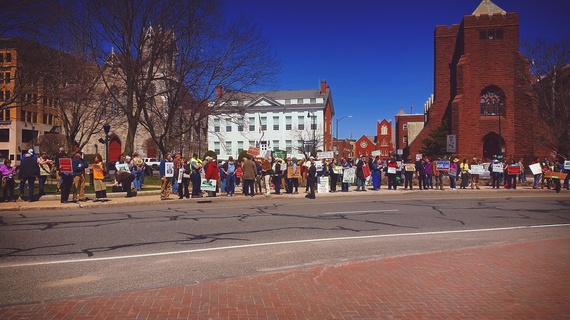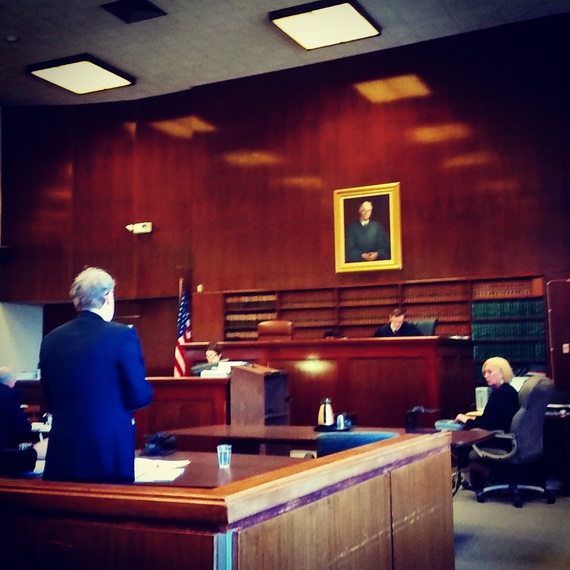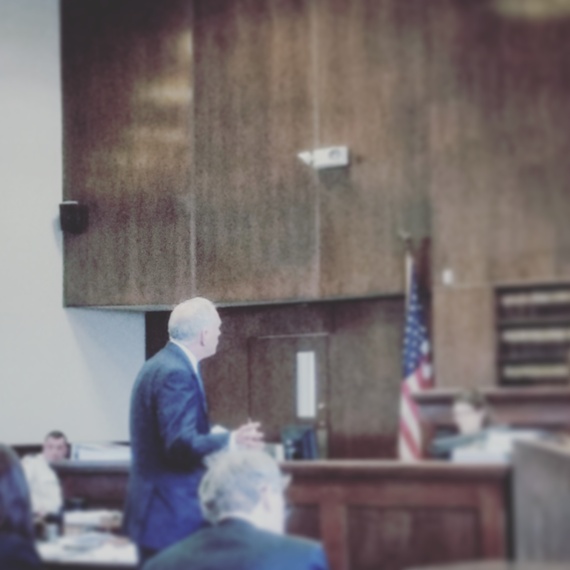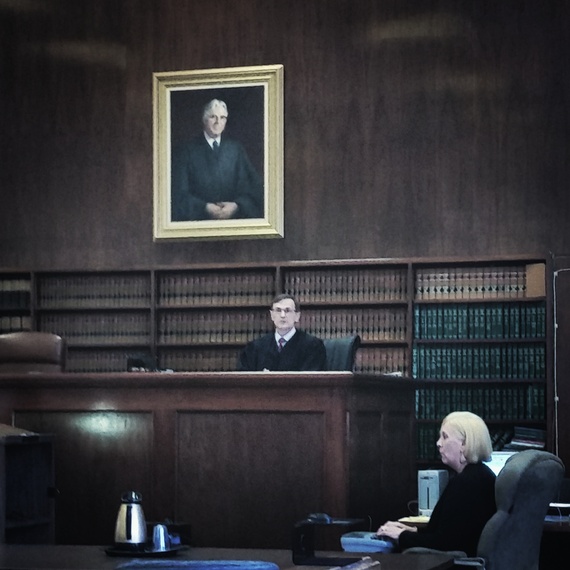A civil court case in Pittsfield, MA, could have far ranging implications for state sovereignty and the supremacy clause.
The case pits energy giant Kinder Morgan's subsidiary Tennessee Gas Pipeline against the Commonwealth of Massachusetts. TGP is seeking an injunction to allow its workers to begin construction of its Connecticut Expansion Turnpike pipeline in a protected state forest in the town of Sandisfield.
The state opposes this on the grounds that construction of the pipeline may violate Article 97 of the Massachusetts Constitution, which reads:
The people shall have the right to clean air and water, freedom from excessive and unnecessary noise, and the natural, scenic, historic, and esthetic qualities of their environment; and the protection of the people in their right to the conservation, development and utilization of the agricultural, mineral, forest, water, air and other natural resources is hereby declared to be a public purpose.
The competing claims for primacy could have major ramifications for the entire country.
Massachusetts Assistant Attorney General Matthew Ireland, representing the commonwealth, told Judge John Asgostino that the state had what amounted to a "sovereignty exception" to the Federal Energy Regulatory Commission's certification for pipeline construction. In other words, Ireland argued that FERC's certification was superseded by the constitutional right to clean air and water provided by Massachusetts.
Judge Agostino replied that he feared the precedent could be set to have any state in the US stop any infrastructural project by their own laws. Federal law would be subservient to state law, the judge said.
Ireland told the court that the Commonwealth was asking for a delay until the legislature could decide whether or not to grant an easement on the land for the company. This would pull the project in line with state law.
Jim Messenger, a Boston attorney representing TGP, rejected this argument. For Messenger and his clients, the FERC certification to begin construction is the law- full stop.
"FERC has exclusive jurisdiction in granting TGP eminent domain," he said.
Messenger argued that the certification provided by FERC is final and binding, and that federal law will overrun any state law. His argument rested on the Supremacy Clause of the US Constitution, which allows the federal government "supremacy" over the states.
The country could not have federal system regulating the common good (railroads, telephones, etc) if the states don't defer their authority, Messenger said. He told the court that common sense, in this interpretation of the law, meant that the Commonwealth couldn't be right. FERC has to be the prime authority on the easements and construction.
Further, Messenger argued, it was out of the court's jurisdiction to do anything more than approve the injunction and allow the company to proceed with construction. Doing anything else would undermine FERC's authority and by extension, the Constitution.
Judge Agostino asked Messenger about equity. Wouldn't it have to be determined here?
No, said Messenger. That would be against the law. He said that FERC's certification allows TGP to use eminent domain. Nothing in MA law can be equal to the federal government in this regard.
"For centuries we have had major infrastructural projects in this country," Messenger said. "And the courts have always recognized the federal right to supersede the states to make them work."
The case brings up a number of questions on states' rights versus federal supremacy:
- Can a state's Constitution have more power than a federal regulatory agency?
- Does the federal government's determination of the common good supersede state-defined Constitutional rights?
- Is eminent domain as defined by FERC stronger than a state's publicly protected land with no easements?
Judge Agostino appeared to acknowledge that reality, telling both attorneys that he fully expected the case to go to the Massachusetts Supreme Judicial Court at least, if not beyond.
For now, though, Judge Agostino said he will work to get an opinion out soon- the first opinion in a case that could go all the way to the Supreme Court.
My reporting on the Northeast Energy Direct Pipeline, a separate TGP project, can be found at The Berkshire Courier and The Berkshire View, as well as my personal site.




